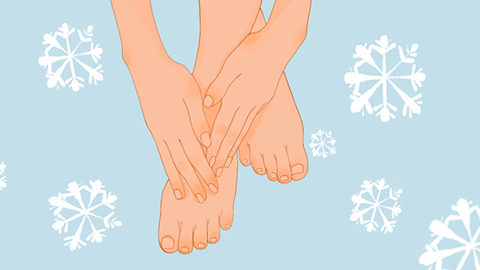What are the symptoms of cold body in men?
Male body coldness symptoms generally may manifest as cold intolerance and sensitivity to cold, persistently cold hands and feet, poor energy levels, weakened digestive function, and discomfort in the reproductive system. A detailed analysis is as follows:

1. Cold intolerance and sensitivity to cold: Low tolerance to cold environments; individuals may easily feel cold even in warm surroundings and require more clothing than others during autumn and winter. Exposure to cold may easily lead to discomfort such as nasal congestion and joint aches, which are difficult to relieve quickly through simple warming measures.
2. Persistently cold hands and feet: Hand and foot temperatures tend to remain low regardless of seasonal changes, with symptoms particularly evident in winter. Even with gloves and thick socks, it may be difficult to warm the extremities. Cold hands and feet at night may affect sleep quality, causing difficulty falling asleep or light sleep.
3. Poor energy levels: Daily fatigue and lack of vitality are common. Individuals may feel tired after minimal physical or mental exertion, with difficulty concentrating and reduced memory. Full energy recovery after rest may be difficult, and symptoms such as excessive sleepiness and frequent yawning may appear.
4. Weakened digestive function: Appetite is relatively poor, especially with aversion to raw, cold foods. After consuming such foods, symptoms such as abdominal distension, abdominal pain, and loose, unformed stools may easily occur. Some individuals may also experience belching and acid reflux, with food digestion significantly slower than average.
5. Discomfort in the reproductive system: Symptoms such as soreness and weakness in the lower back and coldness in the waist area may occur. Some individuals may experience reduced libido due to insufficient yang energy affecting reproductive system function. In severe cases, sperm quality and motility may be impacted to some degree.
Once male body coldness symptoms appear, individuals should avoid prolonged exposure to cold environments in daily life, reduce the intake of raw, cold foods and iced beverages, and choose more warming ingredients such as lamb, ginger, and chives.




